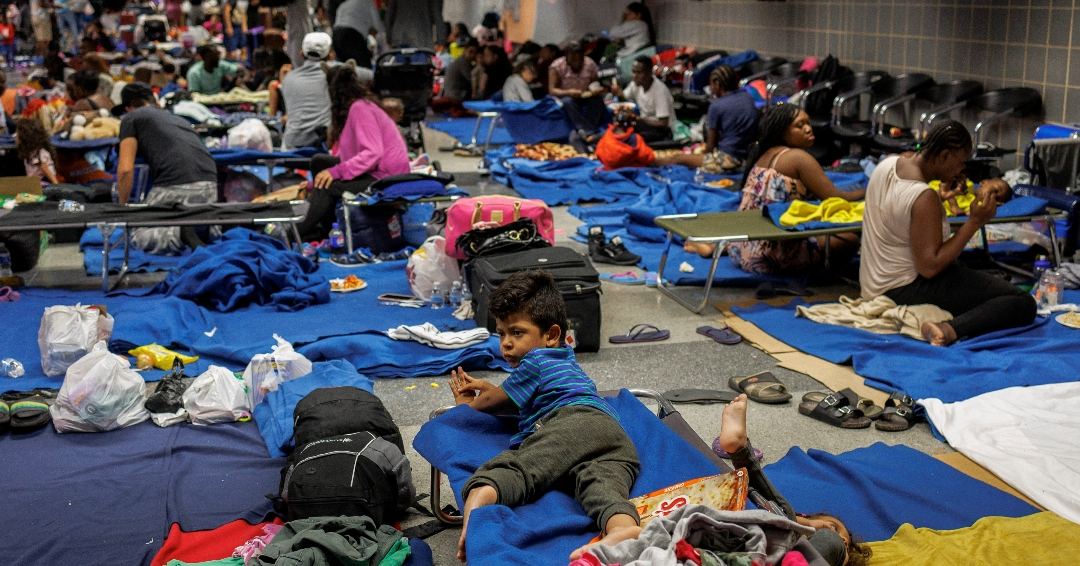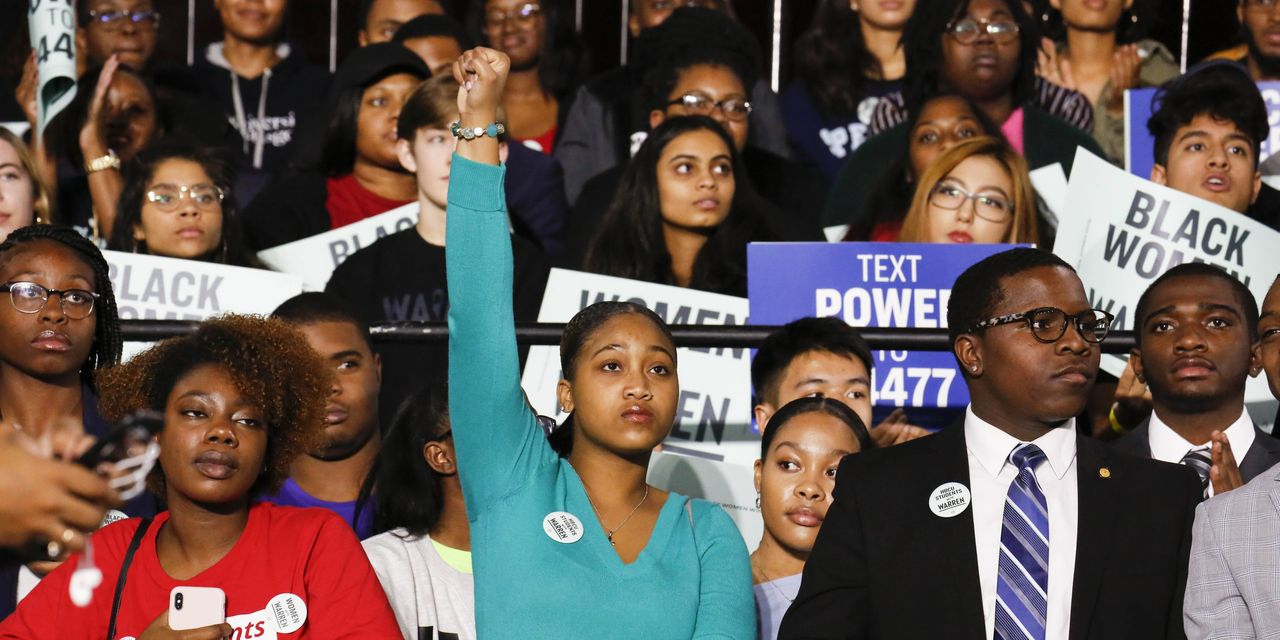Chicago's Migrant Quandary: A Tale of Two Communities
Dunn's Crusade: Fighting for the Soul of Chicago's South Side
Inflamed Community Backlash
In the midst of raucous community gatherings, orchestrated to give voice to long-ignored grievances in the downtrodden enclaves of South and West Chicago, residents have been unleashing their frustration regarding the city's perplexing plan to accommodate migrants within their neighborhoods.
A Reluctant Leader
Natasha Dunn, an entrenched denizen of the forsaken South Side, has emerged as the fiery standard-bearer in the battle to keep migrants at bay, particularly from encroaching upon the premises of a shuttered public school. With a simmering anger that mirrors the simmering unrest in her community, Dunn fervently declares, "We're grappling with rampant crime, sky-high unemployment, and a litany of unaddressed problems. Yet, in this maelstrom, they're introducing a fresh wave of people into our beleaguered community. It's not justifiable!"
Lawsuit and Entitlement
Fueled by her discontent, Dunn took her battle to the courts, launching a lawsuit against the city. Her argument? That the city's residents are somehow "entitled" to access the parks, schools, and police stations that their hard-earned tax dollars ostensibly fund. "We emphatically reject the notion of becoming overburdened with migrants thrust into our neighborhoods," she vehemently declares.
The Migrant Influx
Chicago's frantic quest for housing solutions for the nearly 20,000 migrants who have descended upon the city since August 2022 has left many natives bewildered and irate. A large chunk of these newcomers arrived on buses sent from the Mexican border by none other than Texas Governor Greg Abbott. Even as thousands languish in the city's airports and police stations, awaiting reprieve within newly-erected shelters, a considerable number of these havens are shoehorned into public spaces, like community centers and vacant schools.
A Colder Welcome
As the biting chill of winter looms large, the city has inked a lucrative $29 million contract to erect heated tent camps for the migrants. While the precise locations remain undisclosed, city officials have not-so-subtly hinted at appropriating a parking lot adjacent to an erstwhile grocery store situated on the city's far south side.
Outcry Over Resource Allocation
Tanesha Peeples, a resident residing just a stone's throw away from the tentative campsite, is indignant about the sudden infusion of funds for yet another marginalized populace. She bitterly opines, "The city now magically has a bottomless well of resources to cater to another group, while we've been ardently advocating for these very same resources for generations. It's a grave injustice."
The Mayor's Dilemma
Chicago Mayor Brandon Johnson, seemingly caught between the wrath of the city's long-suffering denizens and the pressing need to cater to migrants, concedes to the burden that many black Chicagoans have borne. "I'm fully cognizant of the tremendous burden on black Chicagoans," he acknowledges. Yet, he implores the city's inhabitants to muster a semblance of unity in this perplexing situation.
An Altruistic Perspective
Right next door to the vacant parking lot, Pastor Leonardo Gilbert offers a perspective that leans toward altruism. His church, an establishment known for its food pantry, stands ready to extend a helping hand to the migrants. He proclaims, "Our own tribulations do not, under any circumstances, absolve us of our duty to extend compassion and assistance to our fellow human beings."






.png)
.png)
Comments